Bob Mayer's Blog, page 62
March 5, 2019
A World-Wide Pandemic?
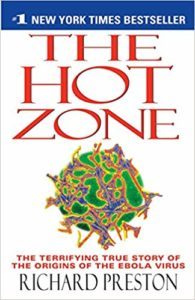
The Hot Zone was a #1 bestseller when it came out in 1995. It also got me thinking. When we deployed overseas one of the things our team medics had to study and brief the rest of the team on was the medical threats in our area of operations.
I was on my sixth Dave Riley novel and I decided to write about a pandemic being utilized as a weapon. Biological warfare has always been an indiscriminate weapon and therefore not popular with the military. That is, of course, changing. On our current horizon, we will see biological weapons designed for specific genomes. We’re talking genocide.

Continuing my tradition of brilliant titles, I topped my five previous books with this one: Z.
Yep. That’s it. One letter. I mean, seriously? Why didn’t anyone smack me upside the head? I thought I was being cute. Big lesson here, writers! Don’t be cute. Be smart.
Terrible, terrible title. As you can see, since I’ve republished it, I’ve added Final Countdown to the title to give it a little pizzaz.
At this point in my career I was doing one thing right, though. I was staying ahead of my contracts. Z was the third book on my second three book deal. But I was already thinking ahead. This is one reason why I’m still making a living as a writer after three decades– I stayed ahead. Any writer who thinks they have it made? Their career is over at that moment.
My wife asked me the other day how many people have been making a living as a writer of fiction as long as me and the list is pretty short. That’s not boasting. That’s just a reality.
So, I will soon talked about how I further went into the science fiction field with The Rock one of my favorite books.
February 28, 2019
How Do You Stop An Imperial President?

One of the duties of a fiction writer is to predict the future; and sometimes re imagine the past.
The issue of a president bloated with power and breaking the law is a problem that has bedeviled our country throughout its existence.
There are times when Presidents have pushed the limits of
the law and even broken it. Sometimes for good, sometimes for bad. Sometimes
for objectives that can be argued about, such as empire-building. After all, the
Louisiana Purchase was completed by Jefferson by bending, if not breaking the
law. Lincoln violated the law during the Civil War. The Mexican War, which U.S.
Grant fought in and thought immoral, was almost solely for empire.
I pondered this question a few years ago and then wrote a book on the premise that men such as Alexander Hamilton and Thomas Jefferson, coming from opposite ends of the political spectrum but also being intelligent, would see the potential problem. And come up with a solution.
The solution was The Jefferson Allegiance.
When this book came out, it ended up being a #2 national
bestseller on Barnes and Noble, just behind The
Help.
To give you an idea of times when such a document might have reeled in a president from going too far, here is a slideshow:
The Presidents facing the Jefferson Allegiance from Bob Mayer
February 27, 2019
Who Would You Want To Survive With?
Yourself
and Your Team:
What
special skills and background do you have? The people on your team?
These
include medical, construction, problem solving, military, the list is basically
about coping with a mild emergency that isn’t life-threatening. The key is to
know what you can and can’t do, and what those around you can and can’t do.
Think back to the last emergency experienced—what was the reaction? The answer
to this will give a heads up to how one will react in the next emergency. There
is no right or wrong answer, but awareness helps.
These
skills include medical, military, gardening, hunting, survival training and
experience, pilot, boat operation, camping, weapons, cooking, land navigation,
swimming, communication (personal and technical) construction, problem solving,
fire starting, knot tying, the list goes on and on. Under Mod/Ex we’ll talk
about team building. Think back to the last crisis encountered. What was the
instinctual reaction? Some people can react well others panic. This is a
reality that has to be factored into any scenario.
Task Four
Mild: Evaluate & list the
following for you and each member of your A-Team.
Name:
Ability
to react in an
Emergency:
Special
Skill/Background #1:
Special Skill/Background #2:
Special
Skill/Background #3:
Special
Skill/Background #4
Overall physical
condition
This
includes ability to walk, how much of a pack one could carry, physical
disabilities, allergies, medical status, special needs, etc.
Task Five
Mild: Evaluate and list the
following for you and each member of your A-Team.
Name:
Overall physical condition:
Medical status:
Allergies:
Medications:
Ability to walk/run:
Special needs:
Able to swim?
Able to drive?
Access to a vehicles?
By looking at these checklists you can see what assets and liabilities you and your A-Team have.
From The Procrastinator’s Survival Guide.
February 25, 2019
Goodfellas; and Barge?
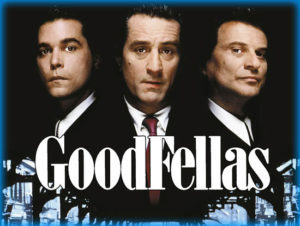
Since every idea has been done, a job of the writer is to absorb as much idea and story from the world around them. Not to plagiarize: it’s research. It’s our job. In the evening, my wife and I, and our dogs, pile into bed and watch TV. My wife always has the remote and she’s always right about what she chooses to watch. The range is eclectic. Sometimes I think she’s the only one who has found certain shows, like the time we watched a documentary on barges– which turned out to be a fascinating study on character.
As you see, I easily digress. My wandering brain which is on the autism scale– my wife also made sure I got it tested a few years back because she was trying to figure me out. They used to call it Aspergers but now its high functioning. I think you pick up on that via these posts.
Sometimes, in the dark of night, I wonder if she had me go get tested for other reasons. Redrum. Actually, a number of people in Special Operations are a bit off on the old bell curve. As the sergeant major yelled at us one day in formation in 2d Bn, 10th Special Forces: “what do you guys think you are, special?”
Anyway. Back to Goodfellas. We watched that one night many years ago and the next day were discussing it. And one of us, probably her, wondered what if they simply got rid of people in the Witness Protection Program? That’s because most of them revert to a life of crime.
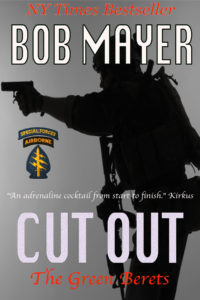
And that was the heart of my fourth book, Cut Out. A somewhat better title than my first four, although I doubt many people know what a cut out is in covert operations: a person who knows both sides but both sides never meet or know the other? It’s a way of keeping both sides safe.
This was the fourth book featuring Dave Riley, the protagonist I began with my earlier books. I just wrote Dave into a future book, New York Minute, which is set in 1977 when Dave is only 17 and getting ready to go into the Army and meets his older cousin, the protagonist of this new series, Will Kane, to ask about Special Forces.
And once more I digress.
February 20, 2019
Area 51: Interstellar
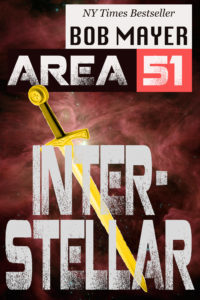
Area 51: Interstellar. The pre-order is live on the 12th book in the epic Area 51 series. I wrote this book differently, so that readers who have not previously experience any of the books can actually start with this one and by the end of it, they are looped back into where the series currently stands.
And those who have read the previous books, will enjoy having some of the key questions raised in the previous books answered.
Here’s the blurb:
Many millennia ago, humans, including us, were seeded on fifteen worlds by an alien race, the Airlia.
We
believe we evolved, but the reality is we were bred as cannon fodder
for the Airlia’s interstellar war against the Swarm, a viral race whose
only mission appears to be the obliteration of sentient life wherever
encountered.
On some worlds humans realized the truth about their
origins, uncovered their hidden alien overlords and rebelled. On one
world they succeeded, but in the process destroyed their planet. They
sent teams to the other worlds to foment uprisings. Our Earth is one.
Earth15 is also one of those worlds.
One of those teams, Bren
and her mate Marcus, have been leading revolution on Earth15 off and on
for thousands of years, slowly eroding the power of the Duo, the Airlia
who rule as gods. But today she encounters Arcturus, a man who claims
the impossible: he was on the planet before the Airlia.
If this
blasphemy is true, what other truths need to be uncovered about the
history and origin of mankind and our place among the stars? Who are we?
(Please note cover copy not final)
Meanwhile, Scout seems to be growing, much to Cool Gus’ dismay.

February 16, 2019
Stuff Doesn’t Just Happen (book free today)
It really doesn’t. Any man-made disaster usually has seven cascade events, with the seventh being the disaster. At least one of the six previous ones is always human error, if not more. Thus there is a Gift to Failure, if we study it, in order to prevent future, similar failures.

Today 2/16 and tomorrow, 2/17, Stuff Doesn’t Just Happen: The Gift of Failure I is free on Kindle. It examines seven great failures and the events leading up to them.
This book is about catastrophes and how to avoid them, mitigate their
effects and learn from them as seen from the perspective of the Masters
of Chaos: United States Army Special Forces (Green Berets). Taking the
attitude shit happens is negative and is fatal. In this book we learn
why propane has a smell; how crash positions in airplanes were refined;
how economic bubbles happen over and over; how failures in leadership
lead to murder, cannibalism and massacre; and much more.
Titanic: Systematic Failure
Kegworth Plane Crash: The Danger of Deferring to Authority and Experts
Little Big Horn: Leadership Failure
New London Schoolhouse Explosion: Lack of Focus
The Donner Party: Social Disintegration
From Tulips to the Housing Bubble: Greed Overwhelms Reality
Apollo 13: Success Snatched from the Jaws of Catastrophe
The
bottom line is we can predict and prevent most catastrophes because
every one has at least one man made factor, of the 7 cascade events,
involved. In other words, we have control over whether shit happens.
But it means changing a complacent mindset, getting rid of delusional
thinking, and viewing the world around us in a Green Beret way.
Because sh!t doesn’t just happen.
February 14, 2019
Write What You Know?

We hear that all the time. Since I was abducted by aliens, I wrote the Area 51 series to describe the mothership and what they were like and it did rather well.
Or write what you want to know? The bottom line is write.
For my fifth book, Cut Out, the idea was a combination of things. One was an article I read that said an international treaty forbids militarizing Antarctica. Given my natural sunny and optimistic nature I immediately thought: Okay, how did we violate this treaty? We put something down there, nuclear weapons, and lost track of them. I’ve worked for the government. It can happen.

My wife also worked for the government at the National Records Center in St. Louis. And thus was born our heroine in this story who finds some old photos and wonders what they’re of.
The story, of course, leads to Antarctica with my hero, Dave Riley, who is now a civilian working as a contractor, providing security.
Interestingly, I’ve just realized that Dave Riley can make an appearance in New York Minute, my next thriller. It’s set in New York City in 1977 during that long hot summer. Riley is 17, and that’s the year he entered the Army.
Speaking about “write what you know” New York Minute is a classic example of that. I grew up in NYC. I remember that summer. Son of Sam shot a girl I’d gone to elementary school with. One of my uncles worked for the Fire Department on 138th St. in the Bronx and that was the year of the infamous “the Bronx is burning” and the Blackout. New York Minute is a book close to my heart.
Write whatever you want. But just write!
February 12, 2019
What Is An Area Study And Why Should You Do One?
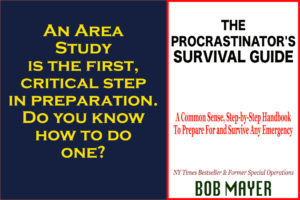
The first thing we did when we were assigned a mission in Special Forces was an Area Study. We examined WHERE the mission would occur in detail. We all need to do an area study of where we live, work, go to school and travel. It is the very first step of preparation, because it focuses you, yet I’ve not seen it in any other survival or prep guide I’ve researched.
An
Area Study is simply examining your environment with the perspective of
evaluating possible assets and threats so you can properly prepare. An Area
Study will allow you to tighten down your preparation and focus on things in
order of priority. It’s not just the environment but also includes yourself and
your team.
You
must conduct an Area Study of your Area of Operations (AO). This means studying
your home, your work, school, and any other locales where you and people on
your A-Team spend a significant amount of time. When taking a trip, you should
conduct a travel area study, examining the route you will take, your destination,
and your route back.
There
are so many cases where a thoughtful Area Study followed up by the appropriate
preparations would have saved lives. Preparation is so much better than
reacting. Which is what we’re doing now.
Area
Studies can have non-emergency uses, such as if you’re considering moving to a
new place. An Area Study can provide valuable decision making data.
Think
about it. You live in a tsunami zone. Have you actually driven your evacuation
route? How long does it take? Have you figured out the quickest escape route on
foot, when an accident caused by terrified people blocks the road or everyone
in your neighborhood flees at the same time on the same route creating a
traffic jam? You work on the 40th floor of a skyscraper. Do you ever look
around and ask yourself: how do I get out of here if the normal means of egress
are blocked? While schools run active shooter drills, what about the work
place?
You’ve already begun your Area Study and didn’t even realize it by doing Task Two in the book. Some of the core questions are already answered: How close are you to the nearest military base? Nearest police station? Firehouse? Hospital? Do you know where the closest emergency room is? How long it will take to get there? How quickly can an ambulance respond to your location? When my wife and I lived on a winding road that was difficult and confusing to travel, during one medical emergency my wife had to be driven to the nearest largest road to meet an ambulance as it came toward us, saving considerable time and perhaps her life.
You
want to examine your environment for a lot of things. What can harm you? What
can help you? What can hide you? What are your enabling factors? What are your
disabling factors? What is the terrain and how can it help you or hamper you in
movement? What are the roads, trails, rail, etc. What effect does your
environment have on you? What effect will you have on it?
You
don’t have to answer these questions right now, but you will soon.
In
essence, an Area Study requires you to invest some time and energy on research
and to look at your surroundings from a different perspective. It can actually
be a fun experience and allow you to see the world around you with a different
perspective. Get your A-Team involved because we all look at things a little
bit differently.
When
my A-Team traveled, my engineers would always be looking at things they saw
with a unique perspective. When they saw a bridge, they were mentally
calculating how to blow it up. When they saw a stream, they were thinking how
to provide a water supply to villagers and irrigation for fields. My weapons
men would look at terrain for fields of fire for direct and indirect fire
weapons. And cover and concealment for us. As a survivor, you have to look at
your environment in terms of what you can use and what can be a threat, what
can be scavenged and much more, which requires you to assume a different
mindset for a while.
We
live in a variety of natural environments. There are also a wide range of human
developments from urban to remote rural. Thus one size doesn’t fit all.
Doing an Area Study is critical so you can tailor your preparation (and the information in this book) for your specific situation. Some threats are going to be of much more importance for you to prepare for than others. For instance, if you live in Oklahoma, the threat of hurricane is nonexistent (so far), but tornados and earthquakes are likely.
More detail in The Procastinator’s Survival Guide.
February 8, 2019
Writer’s Need Mule-Like Stupidity
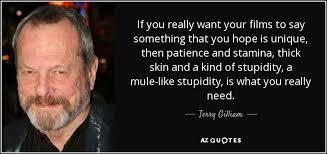
Substitute the word ‘books’ and you’ve got it. Early in my career, which has now spanned three decades, while I was living in a one-room unheated apartment above a garage, I used to say I could make a lot more money doing other things, such as gun-slinging as a contractor. Besides the fact I wouldn’t do that, it just never occurred to me to stop writing.
Now that I’m older those options have dwindled to the only option I want: keep writing.
I often get asked what the key to success is, what the marketing secret is, and I always say: write a book. Then I get asked: What next? Write another book.
Being a writer makes no economic or practical sense. When you tell people you’re a writer, often they’ll ask “What do you do for a living, then?” Or they’ll ask what you’ve written and say they never heard of it.
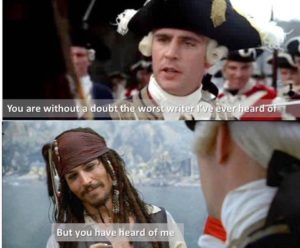
The naysayers will far out number the supporters. In fact, the supporters will be few and far between.
I’m always amazed when I hear about people who get discouraged because some writing instructor said bad things about their writing. Some people even quit, which is incomprehensible to me– giving control of your passion to someone else means the passion wasn’t there. That doesn’t mean negative words don’t hurt, but use them as motivation.
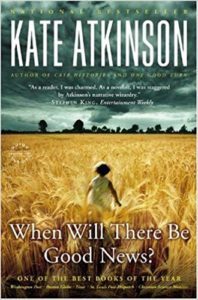
There are times over my career when I fall in what I call the “black hole” where there is no positive news, things look dismal and you do start to think you have some of mental disorder trying to do this for a living. I think of the title to a book by one of my favorite authors, Kate Atkinson.
Nah, we’re just STUPID. But in a good way.
And then come good times when the news is positive and things are clicking. The same is true with the writing. There are days when it’s agony and my wife does not like me being around as I’m in a foul mood as my brain his churning with thoughts of “This is awful, this idea and story suck, it will never work”. And there are days where the writing flows and the characters are alive. Here’s a piece of advice I’ve learned: the actual writing on either of those days is the SAME. Some may disagree with that, but after seventy-five books, I’ve seen a lot of evidence to that.
So what we must do is simple: write.
Here’s to mule-like stupidity!
PS: another hard-earned lesson: almost no one will tutor you on what you need to be an author. How to run a business as a writer, which is critical to success. I took what I did in Special Forces and applied it to the writing world in Write It Forward.
February 6, 2019
The Wife– a must see movie

We recently watched The Wife (because my wife always has the controls and always finds the best stuff to watch, and even if she didn’t, I would say she did, because I’ve gotten wiser in my old age).
First, this is a must see, but especially for writers. Trying to avoid spoilers, but let’s say it does touch on the very nature of creativity and how we write. Where does story come from? Is the actual writing the key or the idea or the editing?
Second, Glenn Close gives an Oscar-worthy performance. She plays the wife of an author who has just won the Nobel Prize for Literature. What unwinds as the movie plays along is the time in Sweden for the prize with flashbacks (yes, the dreaded flashback) to their early life together.
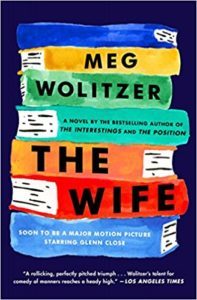
The truth is slowly unveiled, but more importantly, this movie, based on the book, The Wife, by Meg Wolitzer, raises some devastating questions about the nature of people and relationships.
These characters are real. They have real joy and real fights. They have a real relationship that has its up and downs.
The ending is intriguing and, as the best stories do, makes you think. There is no convenient black and white, clear-cut wrap up. Nor are the characters all good or all bad. In fact, a great discussion is who actually was the “worse” of the two? Was there a worse?
On other matters– the first three books of my Atlantis series are only .99 each. Just saying. Cool Gus needs to be fed. And Scout is growing fast.
And I’ve added more free slideshows on writing and survival on my free slideshows page.



